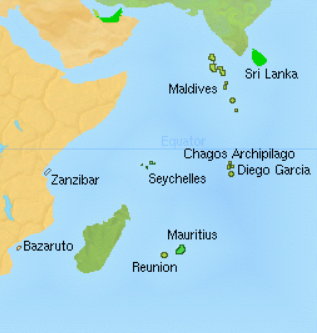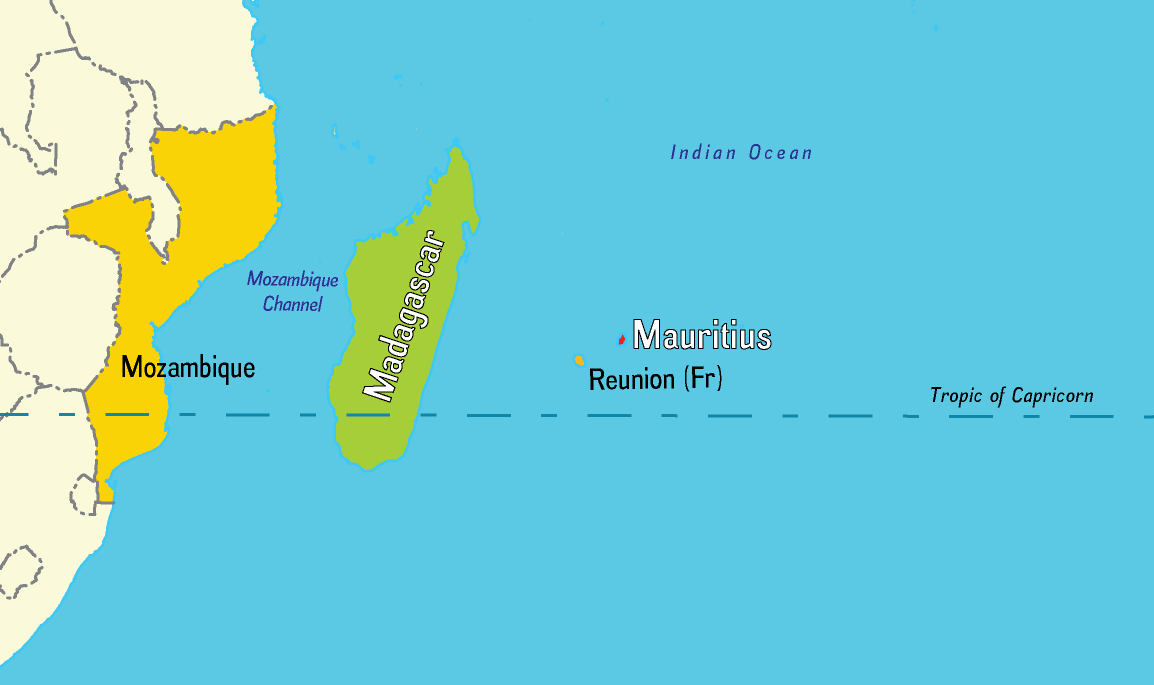International Relations
CECPA: India & Mauritius
- 25 Feb 2021
- 7 min read
Why in News
The Union Cabinet has approved signing of the Comprehensive Economic Cooperation and Partnership Agreement (CECPA) between India and Mauritius.
- The India-Mauritius CECPA is the first trade agreement signed by India with a country in Africa.
Key Points
- About CECPA :
- It is a kind of free trade pact that aims to provide an institutional mechanism to encourage and improve trade between the two countries.
- Under this agreement, countries reduce or eliminate the duties on the products. The countries also give relaxation in the norms to promote the services trade.
Types of Trade Agreements
- Free Trade Agreement (FTA):
- A free trade agreement is an agreement in which two or more countries agree to provide preferential trade terms, tariff concession etc. to the partner country.
- India has negotiated FTA with many countries e.g. Sri Lanka and various trading blocs as well e.g. ASEAN.
- Preferential Trade Agreement (PTA):
- In this type of agreement, two or more partners give preferential right of entry to certain products. This is done by reducing duties on an agreed number of tariff lines.
- Tariffs may even be reduced to zero for some products even in a PTA. India signed a PTA with Afghanistan.
- Comprehensive Economic Partnership Agreement (CEPA):
- Partnership agreement or cooperation agreement are more comprehensive than an FTA.
- CEPA covers negotiation on the trade in services and investment, and other areas of economic partnership.
- India has signed CEPAs with South Korea and Japan.
- Comprehensive Economic Cooperation Agreement (CECA):
- CECA generally covers negotiation on trade tariff and TRQ (Tariff Rate Quotas) rates only. It is not as comprehensive as CEPA. India has signed CECA with Malaysia.
- India-Mauritius CECPA:
- About:
- It is a limited agreement that will cover only select sectors. It will cover Trade in Goods, Rules of Origin, Trade in Services, Technical Barriers to Trade (TBT), Sanitary and Phytosanitary (SPS) measures, Dispute Settlement, etc.
- Benefit to India:
- More than 300 domestic goods from agriculture, textiles, electronics and other sectors will get market access at concessional customs duties in Mauritius.
- Indian service providers will have access to around 115 sub-sectors from the 11 broad service sectors, such as professional services, computer related services, research & development, other business services, etc.
- Benefit to Mauritius:
- It will benefit from preferential market access into India for its 615 products, including frozen fish, speciality sugar, biscuits, fresh fruits, juices, mineral water, beer, alcoholic drinks, soaps, bags, medical and surgical equipment, and apparel.
- India has offered around 95 sub-sectors from the 11 broad services sectors, including professional services, R&D, other business services, telecommunication, environmental, health, etc.
- Negotiation on Automatic Trigger Safeguard Mechanism (ATSM):
- India and Mauritius have also agreed to negotiate an Automatic Trigger Safeguard Mechanism (ATSM) for some highly sensitive products within two years of the signing of the agreement.
- ATSM protects the country from any sudden or dramatic increase in imports.
- Under this mechanism, if the imports of a product are rising alarmingly, then after reaching a certain threshold, India can impose safeguard duties on imports from Mauritius automatically. The same provision applies to Mauritius as well against Indian imports.
- About:
- India-Mauritius Economic Relations:
- India had extended a ‘Special Economic Package’ of USD 353 million to Mauritius in 2016. The New Mauritius Supreme Court building project is one of the projects implemented under this package. This was jointly inaugurated by both the countries in 2020.
- India and Mauritius have jointly inaugurated the Phase-I of the Metro Express Project and the 100-bed state of the art ENT hospital project in Mauritius, also built under the special economic package.
- According to the International Trade Centre (ITC), in 2019, the main import partners of Mauritius were India (13.85%), China (16.69%), South Africa (8.07%), and UAE (7.28%).
- The bilateral trade between India and Mauritius has registered a growth of 233% from USD 206.76 million in the Financial Year (FY) 2005-06 to USD 690.02 million in FY 2019-20.
- Mauritius was the second top source of Foreign Direct Investment (FDI) into India in 2019-20.
- Other Recent Developments:

- India and Mauritius signed a USD 100 million Defence Line of Credit agreement
- Mauritius would get a Dornier aircraft and an Advanced Light Helicopter Dhruv on lease which would build its maritime security capabilities.
- The two sides also discussed the Chagos Archipelago dispute, which was an issue of sovereignty and sustainable development before the United Nations (UN).
- In 2019, India voted at the UN General Assembly in support of the Mauritian position on the issue. India was one of the 116 countries that voted demanding that the UK end its “colonial administration” from the group of islands.
- India delivered 1,00,000 Covishield vaccines to Mauritius.
Way Forward
- The evolving geopolitical landscape of the Indian Ocean (IO) has created new challenges – and opportunities — for the countries in and bordering the IO. Mauritius, along with India’s other smaller island neighbours, is acutely aware of its maritime identity and geostrategic value. They especially understand what these mean for their larger neighbour India.
- India’s approach to Mauritius is being increasingly entrenched within a regional framework, as seen with Mission Sagar, India’s initiative to deliver Covid-19 related assistance to countries in the Indian Ocean region. To take this engagement further, India needs to remain proactive in bringing together like-minded partners such as Mauritius, Comoros, Madagascar, Seychelles, Maldives, and Sri Lanka in numerous and overlapping ways.





